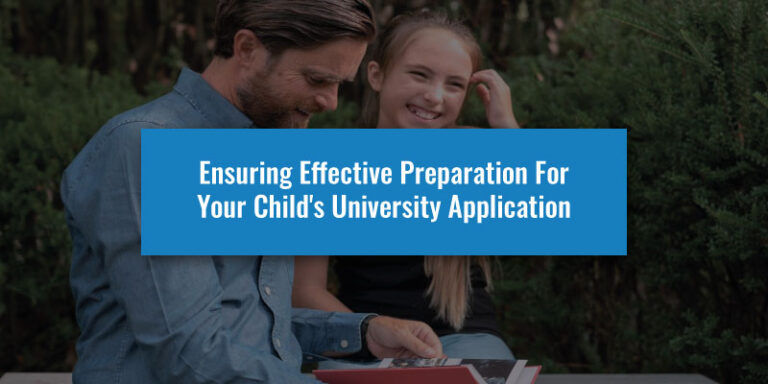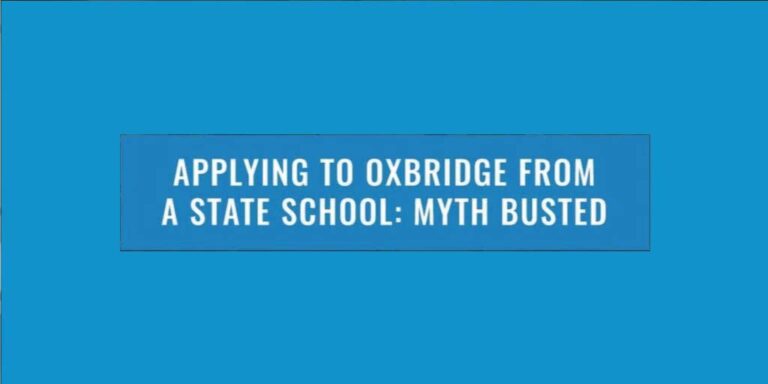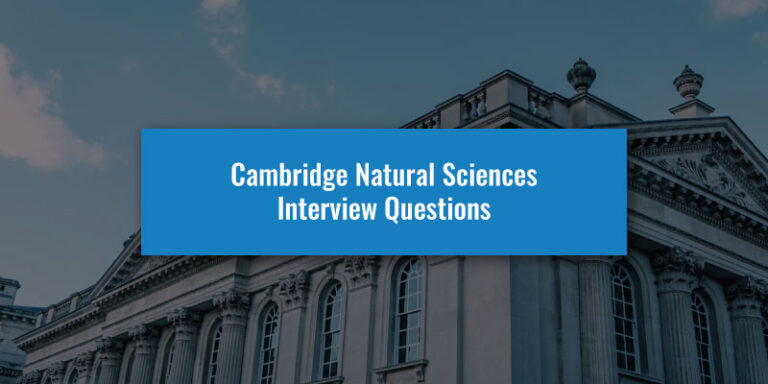Cambridge Natural Science consistently attracts the top students so perfecting your application is essential.
It’s one of the highest ranked universities for Physics, Chemistry and Biology, all of which can be studied in this one course! The application process has multiple steps, which helps the university in their decision making.
Whilst this process may seem daunting, once you learn about each step and break each down into chunks, everything becomes a lot more manageable.
We will go over everything you need to know.
What Makes Up A Natural Science Application?
The Cambridge application steps are comprised of a few parts, and they vary slightly between different colleges in Cambridge. However, there are a few common steps that are vital to the application:
- Personal Statement: This is your chance to articulate why you would like to study a particular course, and what skills and experience you possess that show your passion for the subject.
- ESAT test: You will be required to sit an Admissions Test, so that the Admissions Tutors have some tangible evidence to help base their decision off of – this is the Engineering and Science Admissions Test (ESAT).
- Interview: You will be required to attend an Interview as part of the admissions process, there is no set number of how many Interviews you will have but it will be at least two.
Generally, each of these Cambridge application steps carries different weights and purposes for the application. It is helpful to understand their relative importance and thus guide your focus while preparing for it.
Need help securing your place at Cambridge to study Natural Science?
We help you craft the perfect Personal Statement, achieve a highly competitive ESAT score and teach you how to Interview effectively.
Discover our Cambridge Natural Science Premium Programme by clicking the button below to enrol and triple your chances of success.
Natural Science Personal Statement
This step is generally used for initial filtering of student applications. Due to the competitive nature of Natural Science at Cambridge, it is essential that you use your Personal Statement to sell yourself.
This is a necessary step as it is the first impression the Admissions Tutors will have of you. You need to make sure you sell yourself to best ensure you are invited to an Interview.
Make sure you are telling them why you are applying by including your ambitions, as well as what interests you about Natural Science. Tie this into what makes you suitable for the course with relevant experience, skills, or achievements you have gained from education, work, or other activities.
Any personal circumstances that may affect your educational performance should also be outlined, such as health issues or changing schools.
Once you have been invited for an Interview, make sure to refresh your memory of your Personal Statement as chances are you will be asked questions related to it so make sure you remember what you had written.
And remember, you have got to do all of that within the 4,000 character and 47-line limit.
Engineering and Science Admissions Test (ESAT)
The Engineering and Science Admissions Test is a test unique to Cambridge and is designed to test your knowledge in Mathematics, Physics, Biology, and Chemistry.
There are five subtests within the ESAT, three of which must be completed by each applicant. The tests cover all of the subjects outlined above, plus Mathematics 2, which covers more advanced principles. All applicants must complete the Mathematics 1 subtest, but the other two can be chosen by most applicants.
The test is multiple-choice and operated by Pearson VUE, meaning it is taken on computers at specialised testing centres. The specification for the test is extremely lengthy, covering the required knowledge for each subtest.
The ESAT requires not only knowledge of the subject, but also the ability to demonstrate scientific thinking: recognising the assumptions made, designing an experiment, avoiding bias, etc.
Time is limited during the ESAT so it is essential you do not waste time trying to decide which sections to answer, it is most likely you will already have an idea of what sections you want to answer based on your interests as it is.
Natural Science Interview
The Interview is truly your time to showcase yourself. Making a good impression and having a positive rapport with the Admissions Tutor is essential.
Interviews at Cambridge are designed to mimic the supervisions that form part of your course – and they may even be led by the very person who is interviewing you. The questions are designed to make you think and interact in this kind of setting so the interviewers can see how you react to being taught in such circumstances.
Interviews are often an hour or more across multiple interviews offered by all colleges in Cambridge. There is almost always an interview for Mathematics and the subject the student is most interested in. It is no longer a test of knowledge as the ESAT is designed for that purpose.
With the Biological and Physical paths with Natural Science, you will only be asked questions on the subjects that you have mentioned and studied at A-Level. You will not have to learn a new subject for the Interview.
There is a chance though you need to apply your knowledge to a foreign subject. For example, you may be asked to use mechanics that you have learnt in Physics in a Chemical context, even if you have not studied Chemistry. This is to assess your ability to think logically and critically.
As already mentioned, make sure to familiarise yourself with your Personal Statement as you are likely to be asked questions on topics you will have mentioned in it. Maybe you mentioned a book you have read, or maybe an award or challenge you have carried out relevant to the subject.
It will have been around two months since you would have submitted your application, so details of what you wrote are likely to be rusty.
Remember, the Interview is more a test of “how many things are you CAPABLE of knowing” and how quickly you can learn. Interviews often take simple ideas, which can be complex, yet possible to explain using common sense.
Although sounding scary, it is an incredibly fun process, and, also, an invaluable chance to meet world-class scientists, and professors, as they are the ones interviewing. Therefore, preparation for this step of application should not be learning new things as much as knowing what you know already. Thinking about simple, everyday problems like “why the sky is blue?” is far more valuable than learning a new set of hard equations.
Conclusion
Knowing and understanding these three distinct components of your Natural Science application is essential to being accepted to the course.
Therefore, it is very helpful in understanding these main components of the application and help guide your preparation, especially for the Interview stage, which might not be the most straight forward due to its abstract nature.
Whilst each component is an important part of your application, do remember that Cambridge has a holistic admissions process, meaning it looks at everything so doing badly on one section does not necessarily mean an automatic rejection.
Dreaming of studying Natural Science at Cambridge? Our expert tutors are on hand to help you secure your place.
With our Cambridge Natural Science Premium Programme, we help you craft the perfect Personal Statement, achieve a highly competitive ESAT score and teach you how to Interview effectively.
Discover our Cambridge Natural Science Premium Programme by clicking the button below to enrol and triple your chances of success.






